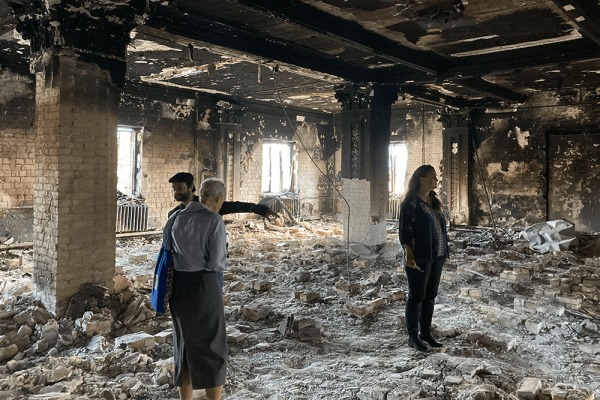Jun 7, 2022
I went to Ukraine to hear Jesus speak in the language of the Ukrainian people, to see their suffering and their creative determination, to touch their wounds and understand how the word of life is surviving there. As a Catholic I believe in the “real presence” of Christ — so being really present in the flesh is part of my call and mission. The “real Presence” is the miracle that changes the “absolutely impossible” to a glimmer of the possible.
Read the Full Article

Already a subscriber? Login
